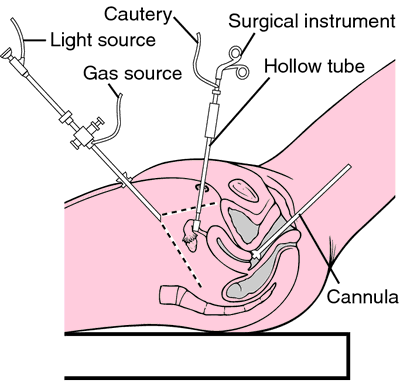Your vulva hurts to touch. Sex is painful, if not impossible. It hurts you to urinate and you itch constantly. If you try to be intimate, insert a tampon or even ride a bike, your genitals feel like they are on fire. You think perhaps it's thrush so you go to the doctor who prescribes an anti-thrush cream that makes you feel worse. Months later, they finally admit it isn’t thrush. You have something called vulvodynia, a pain disorder of the vulva that may or may not be permanent.
Very little is known about the disorder, which was only "discovered" in 1988, but some doctors believe it is a type of fibromyalgia that affects only the genitals.
Women experience a burning of the vulval tissue that is constant but worsens on contact and they may get stabbing pains up the vagina or even referred pain in the legs and feet that actually originates from the vulva. This is similar to the stabbing and burning felt in the muscles of fibromyalgia sufferers.
What Causes Vulvodynia?
No one knows for certain what causes vulvodynia, but there are several contributing factors:
Recurrent Infection – A lot of sufferers have a history of repeated vaginal and bladder infections prior to their diagnosis. It is thought that chronic infection damages the nerves so that any touch is interpreted as pain. Topical anti-thrush creams can also trigger long-term burning and pain if they are used frequently.
Immune System Fault – Some studies have shown that women with vulvodynia have a weaker immune system than healthy women and it is thought it may be an auto-immune problem. Many women with vulvodynia also suffer from other hypersensitivity conditions such as hyperacusis, asthma or eczema.
Neurological Disease – Since sensation is interpreted incorrectly, some doctors believe it is a problem with the brain, rather than the genitals.
Allergic Reaction – some cases of vulvodynia have occurred after taking medications. For instance, the contraceptive pill is known to trigger vulvodynia.
Musculoskeletal Fault – If there is a structural problem with the woman’s body, for instance, if she has a hip problem, this can cause referred pain in her vulva. Sometimes a weakened pelvic floor can cause vulval pain. Kegel exercises and physical therapy can sometimes improve or resolve symptoms.
Allergy to Candida – Sometimes after a thrush infection, a woman can become hypersensitive and have constant thrush symptoms due to candida allergy. Many women tested show positive for candida, e-coli and other pathogens, yet fail to recover or respond to treatments.
Trauma – Trauma to the vagina, either by accident, sexual assault or vaginal childbirth can cause nerve damage and result in vulvodynia. However, some women have reported that the stretching caused by vaginal birth improved their symptoms.
A Subset of Fibromyalgia – Dr. John Willems, Head of Obstetrics and Gynecology at Scripps Clinic in San Diego says that vulvodynia is a genital fibromyalgia. In fact, some women with vulvodynia also have fibromyalgia.
Treatment
Treatments include:
1. Anti-depressants – small doses of these can shut down the body’s abnormal pain response after prolonged use.
2. Lidocaine anesthetic gel – this can be applied topically to the painful areas on a daily basis or before intercourse to stop pain.
3. Vaginal dilators – these are used to gently stretch the vulval tissue which may help reduce pain and assist with intercourse.
4. Kegel exercises and physical therapy can reduce pain in some instances.
5. Steroid creams – Some doctors prescribe steroid creams but they can thin the skin and may even worsen the problem.
6. Sex Therapy – if your condition is so severe it prevents intercourse, a sex therapist can explore alternative ways you can maintain intimacy with your partner.
7. Long-term anti thrush treatment. If thrush is a persistent problem, you will be given anti-thrush tablets to take for several months. These will be oral tablets so they don’t irritate your vagina.
Joanna is a freelance health writer for The Mother magazine and Suite 101 with a column on infertility, http://infertility.suite101.com/. She is author of the book, 'Breast Milk: A Natural Immunisation,' and co-author of an educational resource on disabled parenting, in addition to running a charity for people damaged by vaccines or medical mistakes. She also suffers from vulvodynia and has written this article based on experience.






Add a Comment16 Comments
This wasn't the web page We were looking for however I'm glad I discovered it. I see it's very popular on the web. Good job.
December 25, 2015 - 1:55pmThis Comment
Awesome content. If only all information I found turned out to be this nice. Keep up the good work.
November 28, 2015 - 9:36amThis Comment
If I could find some more content like this one, that would be great.
November 24, 2015 - 5:30pmThis Comment
Excellent content. I wish other information We've stumbled on turned out to be this good. Continue the nice work.
November 16, 2015 - 4:22pmThis Comment
Excellent entry. Among the best I've come across.
October 31, 2015 - 10:55pmThis Comment
Excellent site content. If only all information We've came across was this good. Keep up the good work.
October 22, 2015 - 8:51amThis Comment